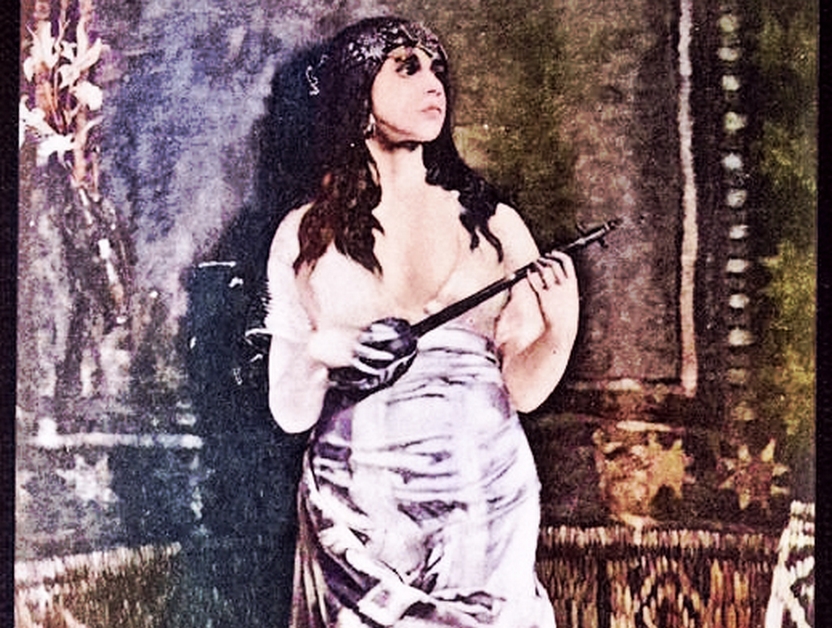Bethany. Bethanien. Village de Béthanie
Enlarge text Shrink text- Poster
Front Text - Edition Fr. Vester & Co., Jerusalem. 24;Text on the back -In the middle: Welpost-Verein Union Postale Universelle Carte Postale - Postkarte. On the left side: Hermann Stiemann, Typographia, Cottbns (Allemagne).;Production period - 1907;founders, architects, painters etc. - Fr.Vester & Co.;Front Period - 1907;Category - Christian site;Description - A horizontal postcard depicting the village of Bethany. Bethany: In the Gospel of John Lazarus, also called Lazarus of Bethany or Lazarus of the Four Days was a man who lived in the town of Bethany [John 11:34-2]. His sisters, Mary and Martha, sent word to Jesus that the one he loved was ill. Jesus delayed, and when he finally arrived it was found that Lazarus had been in the tomb for four days. Martha reproached him, and when Jesus assured her that Lazarus would rise, she thought he was referring to resurrection on Judgment Day, to which he replied, 'I am the resurrection, and the life: he that believe in me, though he were dead, yet shall he live: And whosoever liveth and believe in me shall never die' [John 11:25-26]. The miracle of the raising of Lazarus, the longest coherent narrative in John aside from the Passion, is the climax
| Title |
Bethany. Bethanien. Village de Béthanie. |
|---|---|
| Additional Titles |
Bethany (Eretz Israel - Palestine) |
| Contributors |
אוסף גלויות היודאיקה ע"ש יוסף ומרגיט הופמן. האוניברסיטה העברית בירושלים. המרכז לחקר הפולקלור. אוסף גלויות היודאיקה ע"ש יוסף ומרגיט הופמן |
| Creation Date |
1907 |
| Call number at Current Custodian |
אוסף גלויות היודאיקה ע"ש יוסף ומרגיט הופמן. |
| Extent |
כולל איור.. |
| Access Rights |
online_resources |
| Language Note |
French German |
| Credits |
אוסף גלויות היודאיקה ע"ש יוסף ומרגיט הופמן, המרכז לחקר הפולקלור, המכון למדעי היהדות ע"ש מנדל, האוניברסיטה העברית. |
| National Library system number |
997003428690405171 |
When using this material, please acknowledge the source of the material as follows:
אוסף גלויות היודאיקה ע"ש יוסף ומרגיט הופמן, המרכז לחקר הפולקלור, המכון למדעי היהדות ע"ש מנדל, האוניברסיטה העברית.
תנאי השימוש:
For research, study and teaching
You may copy the item and use it for purposes of personal study, teaching and research only.
You must credit the creator(s) with every use of the item.
It is prohibited to distort or change the work in any way that will damage the integrity of or defame the creator.
There is no need to contact the National Library for permission to use the item for the purposes of personal study, teaching, and research.
Any use that deviates from the rules of fair use is conditional on receiving permission from the copyright owner of the item. You can contact the National Library for the copyright owner’s contact information by Inquiry for Copyright form.
Additional information:
The item may be subject to copyright. Making the item accessible and available to the general public is done in accordance with Section 19 of the Copyright Law, 2007 (“Fair Use”), for the purposes of personal study, teaching, and research.
Note: The law permitting use of the work under the principle of fair use applies only in Israel. Therefore, if you wish to make use of the work outside of Israel, it is your responsibility to check whether the law in the destination country permits such use.
If you believe that there is an error in the information above, or in case of any concern of copyright infringement in connection with this item, contact us using the Inquiry for Copyright form.
MARC RECORDS
Tags
Have more information? Found a mistake?

 Sign in with Google
Sign in with Google
 Sign in with Facebook
Sign in with Facebook





